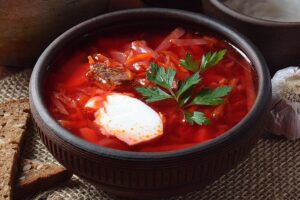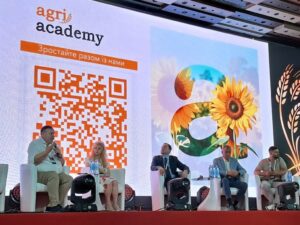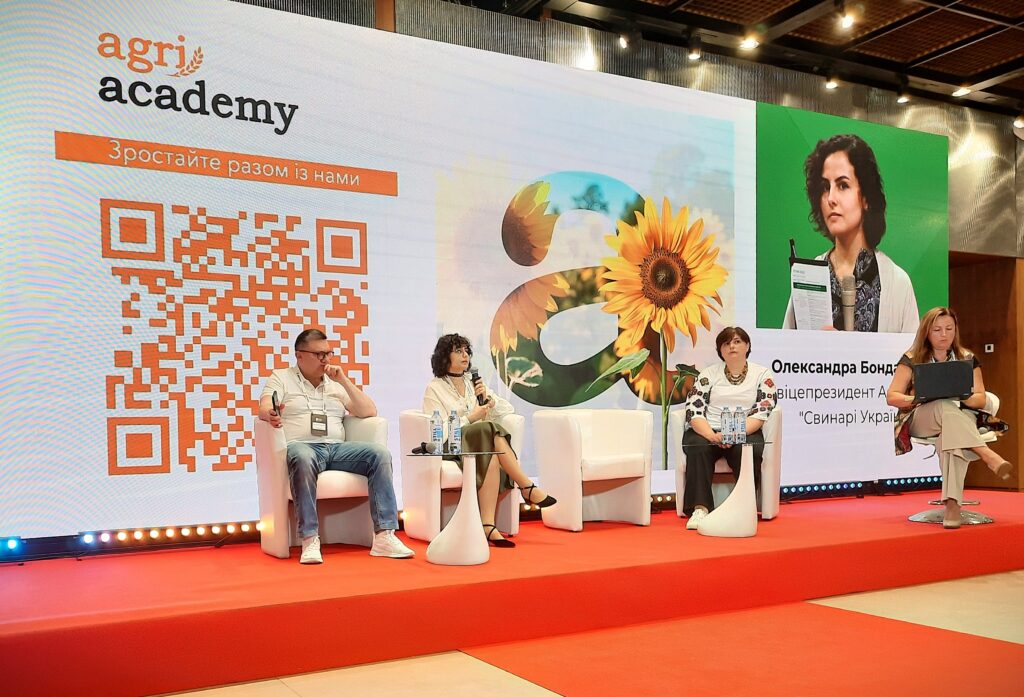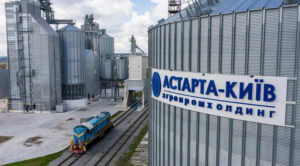
The average time taken to decide on buying an apartment in 2025 has increased to 67 days, which is more than three times longer than in pre-war 2021 (21 days), according to the press service of the development company DIM, citing internal CRM analytics and market analysis over the past four years.
“We are no longer dealing with emotional demand. The buyer of 2025 is a person who thinks, doubts, compares, consults, and chooses a balance between emotions and rational preferences. Selling has become a process of mutual decision-making, not just a demonstration of advantages,” comments DIM junior partner Arseny Nasirovsky.
According to the company, the number of points of contact before a purchase has increased 2.3 times since 2021, from 5-6 times to at least 13. Today’s buyers research the project online (website, digital cases, video reviews), visit the sales department at least once with a companion or relative, monitor the construction progress for some time, and even request a legal review of documents or a contract template for review.
At the same time, in 2021, 62% of transactions took place at the foundation stage or when the property was up to 30% complete. In 2025, such cases will account for just under 18%. On the other hand, 77% of purchases are properties that are more than 60% complete or have recently completed previous phases, demonstrating that the developer is continuing to build and is doing so systematically.
As for neighboring markets, this figure ranges from 60 to 120 days in European countries. In particular, in Spain, the average cycle for deciding to buy an apartment is 90-120 days, in Germany – 75 days, and in Poland – about 60.
“The market must adapt to a new behavioral model. If earlier it was a race for square meters and discounts, today it is a test of reputation, documents, and the logic of development. A new norm is emerging that is quite capable of changing the logic and structure of the new-build market: a thoughtful, rational purchase with elements of financial planning,” Nasikovsky concludes.
The portfolio of the development company DIM consists of real estate in Kiev and the surrounding area with a total area of more than 900,000 square meters. More than 3,600 apartments have been commissioned, and more than 356,000 square meters of residential and commercial space has been built. Six projects with a total area of more than 346,000 square meters are under construction.
Source: https://interfax.com.ua/

Passenger traffic across the Ukrainian border during the week of June 7-13, with the onset of summer, the end of the school year, and the start of the vacation season, increased by another 3% to 590,000, according to data from the State Border Service on Facebook.
According to the data, the outbound flow increased from 311,000 to 324,000, while the inbound flow increased from 262,000 to 266,000.
The number of vehicles that passed through checkpoints this week increased from 125,000 to 127,000, while the flow of vehicles carrying humanitarian cargo remained at 514.
During the week, the State Border Service reported an increase in passenger traffic across the Ukrainian border and the resulting queues.
“The heaviest traffic is observed at the end of the week and on weekends,” the agency said.
According to the State Border Service, at noon on Sunday, the longest queue of passenger cars at the Polish border was at the Ustyluh checkpoint, with 80 vehicles, while 15 cars were waiting to cross the border at Uzhgorod and Shehyni, and 10 at Krakivets.
At the border with Hungary, there were queues of 20-25 cars at all crossing points – Vylok, Luzhanka, Tisa, Dzvinove, and Kosino.
At the border with Slovakia, 40 cars were waiting to pass inspection at the Uzhgorod checkpoint, and 15 at Maly Berezny.
At the border with Romania, there was a queue of 50 cars at the main crossing point “Porubne.”
The total number of people crossing the border this year is higher than last year: during the same seven days last year, 306,000 people left Ukraine and 268,000 entered, and the flow of cars was also lower – 119,000.
Last year, a significant summer increase in passenger traffic began in the first week of June and lasted for five weeks in a row.
As reported, from May 10, 2022, the outflow of refugees from Ukraine, which began with the start of the war, was replaced by an influx that lasted until September 23, 2022, and amounted to 409,000 people. However, since the end of September, possibly influenced by news of mobilization in Russia and “pseudo-referendums” in the occupied territories, followed by massive shelling of energy infrastructure, the number of people leaving exceeded the number of people entering. In total, from the end of September 2022 to the first anniversary of the full-scale war, it reached 223,000 people.
During the second year of the full-scale war, the number of border crossings to leave Ukraine, according to the State Border Service, exceeded the number of crossings to enter by 25,000, during the third year by 187,000, and since the beginning of the fourth year by 137,000.
As Deputy Minister of Economy Serhiy Sobolev noted in early March 2023, the return of every 100,000 Ukrainians home results in a 0.5% increase in GDP.
In its April inflation report, the National Bank again estimated the outflow from Ukraine in 2024 at 0.5 million (according to the State Border Service – 0.315 million). In absolute terms, this means an increase in the number of migrants remaining abroad to 6.8 million in 2024. The NBU also maintained its forecast for the outflow in 2025 at 0.2 million.
According to updated UNHCR data, the number of Ukrainian refugees in Europe as of May 31, 2025, was estimated at 5.059 million (as of April 17 – 6.358 million), and worldwide – at 5.620 million (6.918 million).
In Ukraine itself, according to the latest UN data at the end of last year, there were 3.669 million internally displaced persons (IDPs).

In June, Ukraine saw a significant increase in meat prices, while the cost of young vegetables and eggs decreased, according to the food monitoring report by the Ukrainian Agribusiness Club (UAC).
Analysts noted that prices for vegetables from the previous harvest continue to rise. The borscht index fell by 12% over the month, but rose by 27% over the year, reaching UAH 196. This is UAH 26 cheaper than last month, when the cost of the dish was UAH 222.
“Vegetable prices are showing seasonal dynamics: new harvest products are becoming cheaper, while old ones are becoming more expensive,” the UACB emphasized.
The retail price of onions reached 40 UAH/kg, which is 33% more than a month ago and 32% more than last year. Old potatoes on supermarket shelves rose in price by an average of 10% over the month, to 38 UAH/kg (+33% over the year). At the same time, new harvest vegetables are appearing on the market, putting pressure on prices. For example, young cabbage fell in price by 66% over the month to 25 UAH/kg (but +64% compared to last year). Cucumber prices continue to fall, down 18% over the month and averaging 65 UAH/kg, which is also 11% cheaper than last year. Tomatoes remain stable at around 99 UAH/kg, but are 12% more expensive than a year ago.
Experts drew attention to the meat market, where changes are most noticeable and prices have risen sharply. In particular, beef (goulash) rose in price by 6% over the month, to 336 UAH/kg (+20% year-on-year). Chicken showed even more rapid growth: fillets rose in price by 11% to 222 UAH/kg (+39% year-on-year), thighs by 28% to 154 UAH/kg (+39%), and carcasses by 25% to 110 UAH/kg (+42%). In contrast, the price of pork neck remained stable at 330 UAH/kg, which is, however, 31% higher than a year ago.
“The significant increase in chicken prices is partly explained by higher feed costs, while beef is becoming more expensive amid limited supply,” the business association explained.
At the same time, the dairy segment has shown stable price dynamics over the past month, which is explained by an increase in the supply of raw materials. For example, milk fell by 2% to 54.3 UAH per 900 ml, cream by 6% to 33.3 UAH per 200 g, and hard cheese rose slightly in price (+1%) to 631 UAH/kg.
According to analysts, prices for groceries also remain stable thanks to sufficient volumes of products on the market and steady demand. For example, sunflower oil fell by 2% to UAH 75.3 per 850 ml, and sugar by 1% to UAH 32.7 per kg.
In addition, there has been a slight decrease in prices for chicken eggs, which in category C1, in particular, fell by 5% over the month to 68.9 UAH per dozen, although in annual terms their cost remains 79% higher.

At one of the largest agricultural events in the country, the Agro Ukraine Summit in Kyiv, the AgriAcademy.org platform was presented, providing free access to professional education for farmers from all over Ukraine. The initiative was presented at three industry conferences during the summit and attracted considerable interest from industry associations, producers, and processors, according to SEEDS.
“Today’s agribusiness requires quick decisions, relevant practical knowledge, and continuous professional development. That is why I would like to draw your attention to one of the most promising initiatives in the field of professional education for agribusiness – AgriAcademy.org. This is a unique educational platform that brings together the agribusiness community of Ukraine and provides modern, practical knowledge in the form of free online courses developed by the best experts from Ukraine and around the world.

It is designed for professionals in the agricultural sector: business owners, managers, farmers, agronomists, veterinarians, and anyone interested in practical knowledge and increasing profitability,” emphasized Rodion Rybchynsky, Chairman of the Ukrainian Flour Millers Association and UN FAO grain market expert, during a panel discussion on “The transformation of grain processing in the context of European integration.”
“The platform already offers 23 free online courses in Ukrainian, developed with the support of the EBRD. Each course has been created in collaboration with leading Ukrainian and international experts, with a focus on practical benefits for business,” said Rodion Rybchynskyi.
AgriAcademy was also presented at the conferences ‘Futurology of Grain Storage’ and ‘Effective Livestock and Poultry Farming,’ which allowed it to reach a wide audience. Each conference was attended by 70 to 150 participants, and a QR code with direct access to AgriAcademy was displayed on the screen every 15 minutes in the Summit exhibition area.
Among the speakers who presented the platform was Oleksandra Bondarska, Vice President of the Ukrainian Pig Breeders Association.
“AgriAcademy offers over 300 hours of training. After completing the course, participants receive an official certificate. It is a tool for the real development of agricultural entrepreneurs,” said Oleksandra Bondarska, speaking to an audience of livestock and poultry farmers.

“The platform offers a course entitled African swine fever – everything a business needs to know. The course covers all aspects of African swine fever (ASF) that need to be known, from risk factors and main routes of transmission to effective prevention and response measures. Participants will learn how the disease develops on an infected farm (experience of affected enterprises), how to reduce risks for their farm, and protocols for action in case of suspicion and after the outbreak has been eliminated,” the expert added.
Oleksandra also advised producers to take the Basics of Pig Health course available on the platform. The course covers issues of animal health support and control throughout the entire production cycle in terms of technological and age groups of pigs and types of diseases, and also includes information on quarantine and the development of herd health monitoring and vaccination programs.
The AgriAcademy platform was also presented by Sviatoslav Tkachenko, member of the board of the Ukrainian Elevator Association, during the conference “Futurology of Grain Storage” to an audience of grain producers, processors, and exporters.
“AgriAcademy offers practical courses in agronomy, irrigation, processing, technology, berry growing, animal husbandry, crop production, veterinary medicine, and ecology:https://agriacademy.org/courses-catalog/
This spring, two courses from specialists at the Astarta-Kyiv agro-industrial holding have been added: Sunflower. Growing Technology and Sunflower. Biological Characteristics of the Crop,” said Sviatoslav Tkachenko.
You can join the free training now at AgriAcademy.org
The courses are designed with the practical needs of the industry in mind and are taught in Ukrainian, ensuring convenience, accessibility, and high learning efficiency. Grow your business with AgriAcademy, your reliable partner in innovation and efficiency improvement!
Source: https://www.seeds.org.ua/

Agroholding Astarta will pay dividends for 2024 in the amount of EUR0.5 per share for a total of EUR12.5 million, which is in line with the previous two years.
The decision was made at the company’s annual general meeting on June 12, according to a statement on the Warsaw Stock Exchange.
The shareholders instructed the board of directors, which proposed the dividends, to determine the payment dates.
In addition, the meeting approved a new version of the company’s remuneration policy, which provides for a new long-term incentive (LTI) mechanism for the remuneration of executive management through the allocation or transfer of company shares to a special trust to be established by the board of directors for the benefit of such persons.
Astarta’s shareholders also approved the issue of new shares in the amount of up to 5% of its authorized capital without preemptive rights, provided that they are distributed solely for the purpose of implementing an employee incentive program, and delegated to the board of directors the authority to issue such shares.
According to information on the stock exchange, the largest shareholders of Astarta are currently Albacon Ventures Ltd, CEO Viktor Ivanchik – 41.4%, which held 53.3% of the votes at the meeting, as well as companies controlled by Fairfax Financial Holdings: Odyssey Reinsurance Company – 7.67%, HWIC Global Equity Fund – 7.29%, and United States Fire Insurance Company – 6.93%.
In addition, the company reported that on June 12, Ivanchik’s Albacon purchased another 5.28 thousand shares on the stock exchange at an average price of PLN59.97 ($14.04 at the current exchange rate) and increased its stake to 10 million 364.50 thousand shares.
As reported, Astarta paid EUR12.155 million in dividends for the first time in June 2021 based on its 2020 results, in the same amount as now – EUR0.5 per share. In the war-torn year of 2022, the company refused to pay dividends, but then paid them in 2023 and 2024.
Astarta shares fell by 1.2% on Friday, June 13, to PLN58.4 per share, while about a year ago, when the dividend decision was approved, the price was PLN29.25 (about EUR6.81) per share, and a year earlier – PLN32.80 (about EUR7.28) per share.
Agro-industrial holding Astarta, Ukraine’s largest sugar producer, increased its net profit by 34.5% to EUR83.25 million in 2024, while its consolidated revenue decreased by 1.1% to EUR612.15 million.
The family of Astarta CEO Viktor Ivanchik owned about 41.48% of the shares at the beginning of this year, having bought 1.22% last year. Fairfax Financial Holdings is also a major shareholder with 29.91%, and another 2.12% of the shares belong to the company itself and were previously bought back.

On June 18-19, 2025, Kyiv will host InnoTechEnergy, an exhibition and forum for innovative solutions in thermal and alternative energy, according to Energoreforma.
As noted in the event announcement, the exhibition will showcase the latest equipment, technologies, and solutions for modernizing heating systems, decentralized generation, renewable energy sources, energy efficiency, and digital transformation in the energy sector.
The exhibition will feature the Future Energy Forum, an innovation forum on the future of thermal and alternative energy.
The forum will serve as a platform for discussing key issues and finding effective solutions to today’s challenges.
The main focus will be on the following key areas:
The event organizers plan to bring together Ukrainian and international companies, representatives of municipalities, communities, relevant ministries, experts, and businesses to demonstrate and discuss the challenges and prospects for the development of key trends in the energy sector.
Registration for exhibition events: https://ite.ticketforevent.com/
For questions regarding participation in events and cooperation:
+38(067) 37-57-637
+38(095) 37-57-637